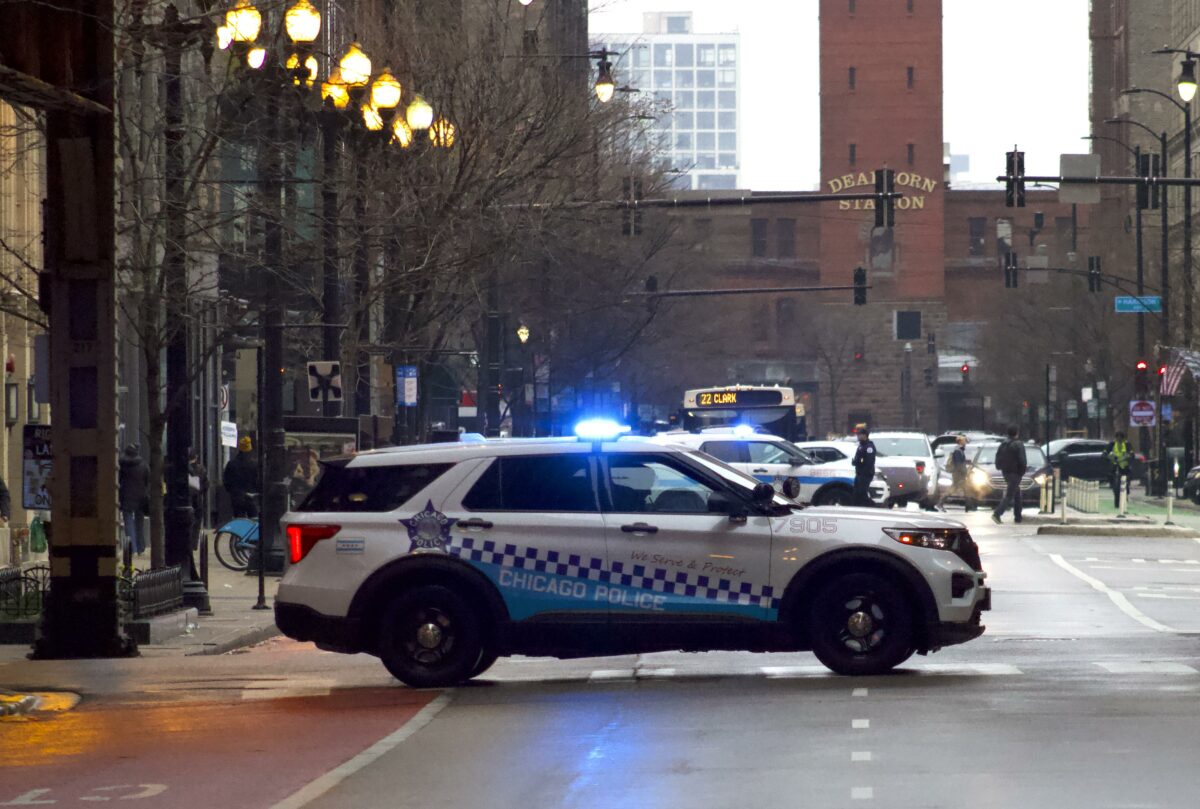As the National Guard and U.S. Marines take up posts in Los Angeles to respond to protests over the Trump administration’s deportation efforts, a dangerous message is spreading from coast to coast: public safety no longer belongs to the public. In Chicago, we are watching this logic take root in a quieter but equally alarming form. A proposed ordinance would give the Chicago Police Department the unilateral authority to impose “snap curfews” on teens, with no oversight and no clear rules.
Supporters of the measure say it’s about public safety and containing chaos. But history—and data—tell us otherwise. The expansion of unchecked police powers, whether through curfews or militarized deployments, rarely serves the public interest. It consolidates authority in ways that reduce accountability and increase the risk of discriminatory enforcement. In Chicago, these dangers are compounded by another, largely invisible threat: the growing influence of private money in policing.
When Policing Moves Behind Closed Doors
The debate over whether to pass Chicago’s snap curfew ordinance unfolds at a time when an alarming trend is on the rise, namely: private donations to police departments. Through tax-exempt foundations and nonprofit shells, police departments across the country, including in Chicago, now receive millions of dollars in unregulated private funds each year.
My team’s analysis of national tax records revealed that following the 2020 protests, private donations to police reached a historic high total of $550 million. These donations did not respond to rising crime rates or budget shortfalls. They were in response to protests and, in effect, funded resistance to police reform and abolition efforts. An unregulated system of donations extends police power and incentivizes abuse. It allows police to act unilaterally and without the approval or funds of local governments, all while having a slush fund to pay for lobbyists and pilots of surveillance technologies.
Chicago is no exception. Local corporate sponsors have quietly funded surveillance tech, public relations campaigns, and even equipment purchases. In one case, after 7-Eleven donated to the Chicago Police Foundation, officers made 389 more stops at the convenience store chain’s locations compared to similar businesses the following year. This was not coincidence—it was influence.
Curfews Without Oversight Are an Invitation to Abuse
If the snap curfew proposal passes, CPD could declare emergency curfews for minors without prior approval from the mayor, City Council, or police district councils. The potential for harm is enormous: curfews have long been enforced disproportionately against Black and Brown youth, and the new plan offers very minimal transparency.
Worse, we risk combining two threats: expanded policing powers, and growing private influence. What happens when police departments with unregulated donor relationships are granted emergency powers? Who will they serve when a sponsor’s retail hub is under threat from teen loitering? What happens when a donor calls for a crackdown during a protest that challenges their business interests?
These are no longer theoretical concerns. For example, in St. Louis, a police foundation literally pays part of the police chief’s salary. In Arizona and Illinois, billionaire donor Howard Buffett used his philanthropy to obtain a badge, weapons, and real operational authority. A snap curfew, in this context, is not just a policy—it is an invitation for the wealthy to write a blank check. And in a city like Chicago, with a long history of racialized policing and political corruption, we should be far more cautious about who gets to fill it in.
We’re on the Verge of a Privatized Security State
The events in Los Angeles offer a glimpse of what happens when elected officials reach for armed force first and democratic processes last. But the militarization of public safety doesn’t always come in fatigues and Humvees. Sometimes it comes dressed as policy, passed through rushed legislation and funded by donors whose names we don’t even know.
Chicago’s proposed snap curfew ordinance is a local version of the same authoritarian drift we’re seeing in cities like Atlanta—one where public institutions and public lands are hollowed out and replaced by private interests seeking favors from police.
If we want policing that truly serves communities, the answer is not curfews or crackdowns. It’s transparency, accountability, and a hard line between public authority and private influence.
We’ve been here before. In the 1920s, Al Capone held significant influence in the Chicago Police Department—not through violence, but through cash. Today, he wouldn’t need to break the law. He’d just start a foundation, lobby the City Council to pass ordinances he could weaponize, and write a check.
Robert Vargas is Professor of Sociology and Director of the UChicago Justice Project.

